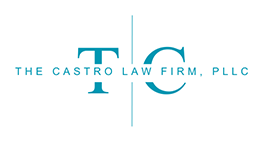Have You Planned To Protect Your Loved Ones Upon Your Death?
It is easy to avoid creating your estate plan. But it is important to plan accordingly so you can make sure your wishes are properly documented and executed when the time arises.
Attorney Taren L. Castro can help you create an estate plan that works for you and your loved ones. With her guidance, you can choose an executor, name guardians for minor children, grant power of attorney in case of incapacitation and place your assets in the right estate planning instrument, such as a trust or your will. Find out how she can help you today. Your consultation is free.
Last Will And Testament
According to Fla. Stat. 732.502, for a will to be considered properly executed it must be in writing, signed by the testator (the person who made the will) at the end, or the testator’s name must be subscribed at the end of the will by some other person in the presence and direction of the testator; the testator’s signing or acknowledgement that he or she previously signed the will or that another person has subscribed the testator’s name to it in the presence of at least two attesting witnesses; and the attesting witnesses must sign the will in the presence of the testator and in the presence of each other. If you die without leaving a properly executed will, Florida Statute will dictate who will benefit from your estate.
Revocable Living Trust
If you want your loved ones to avoid the costs, headaches and time associated with probate, consider having a revocable living trust. A revocable trust is a document created by you to manage your assets during your lifetime and distribute the remaining assets after your death. The grantor or settlor is the person who creates a trust. The trustee is the person responsible for the management of the trust assets. You can serve as trustee, or you may appoint another person, bank or trust company to serve as your trustee. The trust is revocable, therefore you may modify or terminate the trust during your lifetime, as long as you are not incapacitated.
After the trust instrument itself is drafted and executed, you have to fund the trust. What this means is changing the name on property titles or financial accounts to the name of the trust. An experienced estate planning attorney can assist you with this to make sure your trust is properly funded. Upon your death, the trustee is responsible for paying all claims and taxes and then distributing the assets to your beneficiaries as described in the trust agreement.
Living Will
Fla. Stat. 765.302 dictates the procedures for making a living will. A living will is a written document that dictates what kind of medical treatment you want to preserve your life. This document would be used in situations where you are unable to speak, lack capacity or are unable to communicate as to what medical care you want. Most commonly, a living will addresses your medical care if you are in a persistent vegetative state, have an incurable or irreversible terminal condition, or have an end of state condition. Typically, you elect care regarding artificial life support, artificially administered food and water and comfort care related to pain reduction medication.
Designation Of Health Care Surrogate
According to Fla. Stat. 765.202, a designation of health care surrogate is a written document that designates a surrogate to make health care related decisions for you and receive health related information about you. This document must be signed by the principal in the presence of two subscribing witnesses.
Power Of Attorney
Fla. Stat. 709.2102 defines a durable power of attorney. A power of attorney is a written document that allows you to appoint someone to manage your property, finances and even your medical care in your absence or incapacity. In order to be effective, a power of attorney has to be signed by the principal and two witnesses and it must be notarized.
NFA Gun Trust
The National Firearms Act (“NFA”) controls the purchase, transfer and creation of certain types of weapons. These weapons are referred to as Class 3 or Title II firearms, which consist of machine guns, short-barreled shotguns, short-barreled rifles and silencers. You must meet certain conditions outlined in the NFA in order to buy any of these firearms. The NFA requires you complete a Bureau of Alcohol, Tobacco, Firearms and Explosives (“ATF”) form, submit your fingerprints, pay the ATF applicable fees and have the Chief Law Enforcement Officer (“CLEO”) in your area approve the purchase.
Without an NFA Gun Trust, when you pass away, your heirs cannot legally inherit your NFA firearms. Additionally, they could be violating federal laws by just being in possession of these weapons. By having an NFA Gun Trust, you can bypass some of these requirements and keep your heirs out of trouble with the law.
Hire A Knowledgeable Estate Planning Lawyer Today
If you want to help protect your family and draft your estate plan in Palm Beach, Broward and the Treasure Coast area, The Castro Law Firm, PLLC, can provide the assistance you need. Please call 855-998-7570 to schedule your free consultation or send an email today. Hablamos Español.

